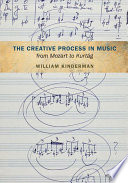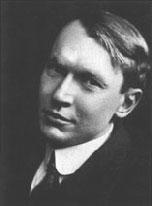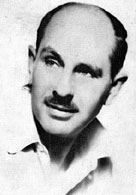
William Kinderman
Born: 1952 in Philidelphia, PA
Pen Name: None Connection to Illinois: William teaches at the University of Illinois in Urbana-Champaign. Biography: Wlliam Kinderman is a professor of music at the University of Illinois at Urbana-Champaign, the editor of The String Quartets of Beethoven, and the author of the three-volume study Artaria 195: Beethoven's Sketchbook for the Missa solemnis and the Piano Sonata in E Major, Opus 109.
Awards:
William Kinderman on WorldCat : http://www.worldcat.org/search?q=william+kinderman
Selected Titles
 |
The creative process in music from Mozart to Kurtág ISBN: 9780252094286 OCLC: 843112624 University of Illinois Press, Urbana : ©2012. Great music arouses wonder: how did the composer create such an original work of art? What was the artist's inspiration, and how did that idea become a reality? Cultural products inevitably arise from a context, a submerged landscape that is often not easily accessible. To bring such things to light, studies of the creative process find their cutting edge by probing beyond the surface, opening new perspectives on the apparently familiar._x000B__x000B_In this intriguing study, William Kinderman opens the door to the composer's workshop, investigating not just the final outcome but the process of creative endeavor in music. Focusing on the stages of composition, Kinderman maintains that the most rigorous basis for the study of artistic creativity comes not from anecdotal or autobiographical reports, but from original handwritten sketches, drafts, revised manuscripts, and corrected proof sheets. He explores works of major composers from the eighteenth century to the present, from Mozart's piano music and Beethoven's Piano Trio in F to Kurtag's Kafka Fragments and Hommage à R. Sch. Other chapters examine Robert Schumann's Fantasie in C, Mahler's Fifth Symphony, and Bartók's Dance Suite._x000B__x000B_Kinderman's analysis takes the form of genetic criticism, tracing the genesis of these cultural works, exploring their aesthetic meaning, and mapping the continuity of a central European tradition that has displayed remarkable vitality for over two centuries, as accumulated legacies assumed importance for later generations. Revealing the diversity of sources, rejected passages and movements, fragmentary unfinished works, and aborted projects that were absorbed into finished compositions, The Creative Process in Music from Mozart to Kurtag illustrates the wealth of insight that can be gained through studying the creative process. _x000B__x000B_ |




